The Missing Piece in Peace: Inside Georgetown’s Powerful Forum for MENA Women
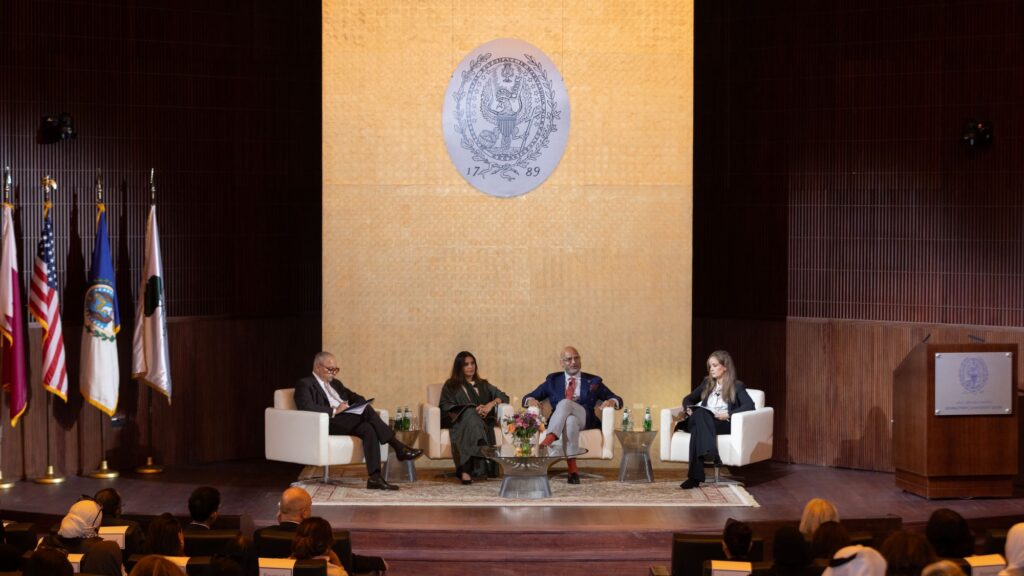
“I want to invite us to rethink what peace truly means.” With these words, Dean Safwan Masri opened the public panel discussion, Empowered Voices: Women Shaping Peace in the MENA Region, hosted by Georgetown University in Qatar (GU-Q) and the Georgetown Institute for Women, Peace, and Security (GIWPS) in collaboration with the Office of the Minister of State for International Cooperation at the Qatar Ministry of Foreign Affairs.
This panel was a central feature of a larger, two-day convening in Doha, where GU-Q, GIWPS, and the Qatar Ministry of Foreign Affairs brought together emerging women leaders from across the MENA region. The convening also marked the launch of the MENA Women Peacebuilders Initiative, a new platform aimed at strengthening the role of women in conflict resolution and peacebuilding across the region.
Her Excellency Minister of State for International Cooperation, H.E Lolwah Al Khater met with participants on the first day. She mentioned during her opening remarks that “This initiative is more than just a gathering; it is a mission to harness the exceptional talents, perspectives, and resilience of Arab women.” She was honored with the 2024 Trailblazer Award from GIWPS in recognition of her exemplary diplomatic and humanitarian leadership, and her unwavering commitment to promoting peace and empowering women in the MENA region.
Dean Masri’s opening remarks at the GU-Q public event set a reflective tone. He noted, “Peace might be defined as the absence of violence or the end of violence. But peace is more than quiet streets or halted gunfire. Peace breathes life into dignity, fosters hope, and carves out opportunity.”
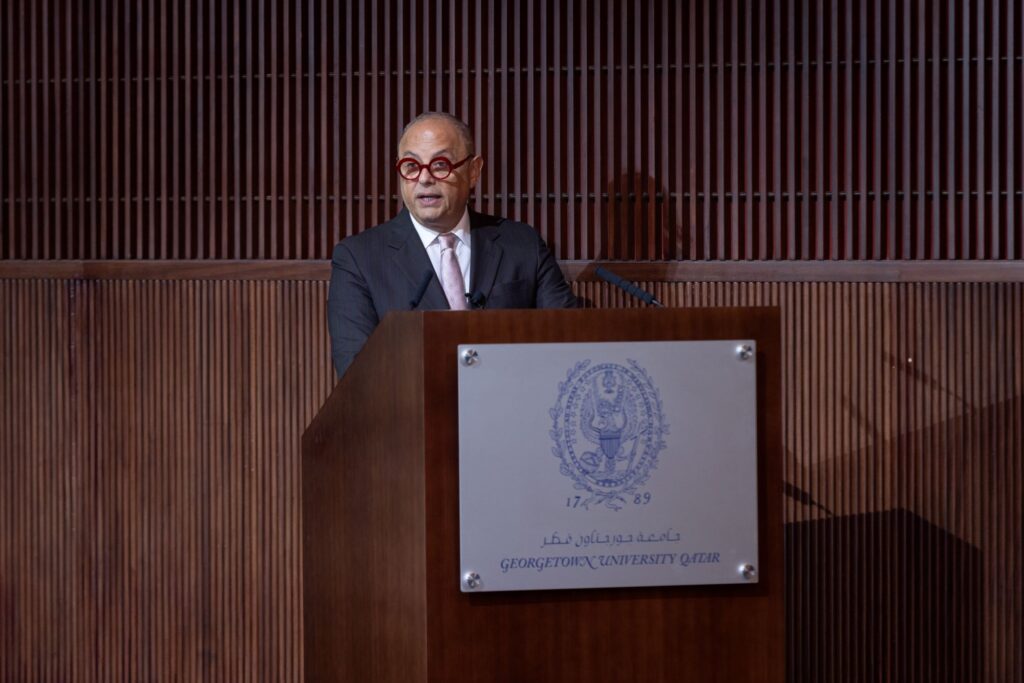
Dean Masri emphasized that peace without justice risks becoming “a brittle calm, like glass stretched too thin, and likely to shatter at the faintest tremor.” Turning to Palestine, he warned of the dangers of this “negative peace,” where silence had concealed long-standing injustices against women for generations.
Highlighting the vital role of women, Ambassador Melanne Verveer, Executive Director of GIWPS, stated, “We cannot have peace without women’s meaningful participation.” She drew attention to the historical underrepresentation of women in formal peace processes, adding that their involvement broadens the conversation to include reconciliation, human rights, and economic opportunity.
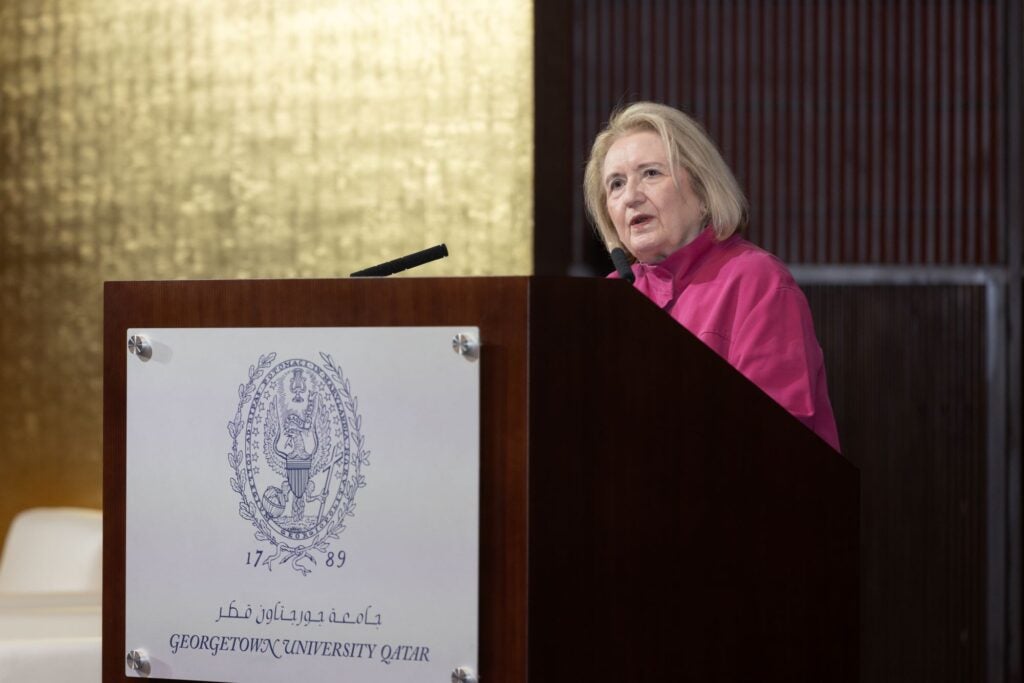
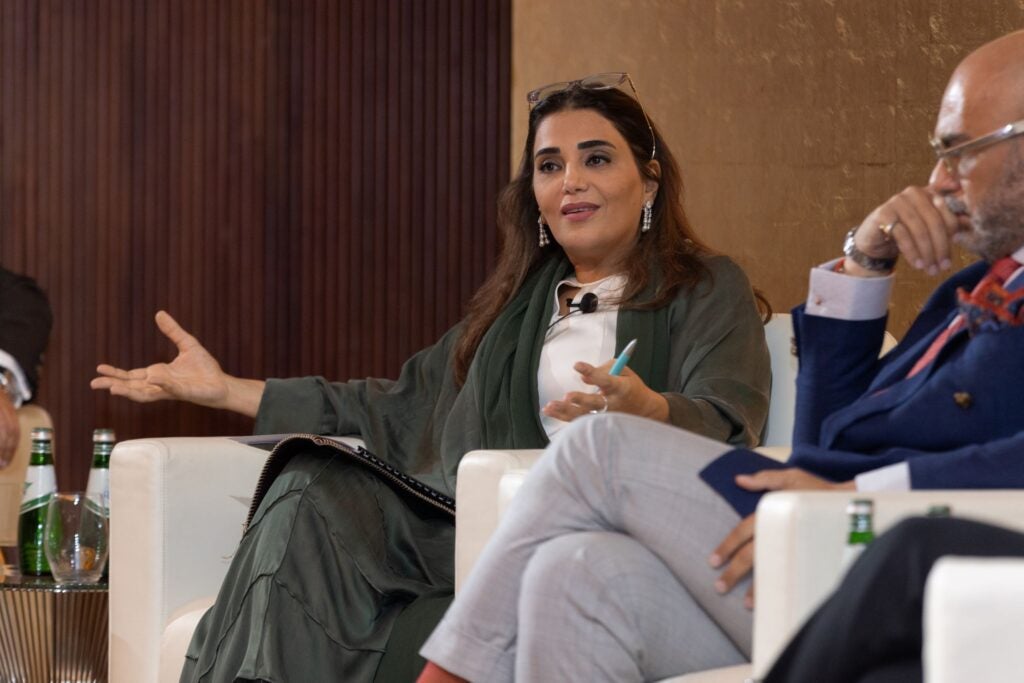
Throughout the event, the panel gave voice to MENA women peacebuilders who shared personal reflections and insights on the challenges they face. Dr. Amal Al Malki, Founding Dean of the College of Humanities and Social Sciences at Hamad bin Khalifa University, championed the importance of “indigenous scholarship, not Eurocentric, not something that we imported.” She cautioned against “the colonial reduction and stereotype” that often frames MENA women through a singular, passive lens.
Addressing this need for structural change, Dr. Houda Abadi, Founder and Executive Director of Transformative Peace Consultancy, emphasized an intersectional approach within the Women, Peace, and Security (WPS) agenda. She pointed to gaps in international frameworks that often overlook the specific needs of women in the Global South. Dr. Abadi urged the WPS agenda to “adopt a comprehensive understanding of both local and global dynamics,” stressing that solutions must be grounded in the experiences of communities most affected by conflict.
Mohammad Naciri, Chief of Staff for UN Women, celebrated the diversity within the convening’s cohort, noting, “One of the many reasons that it was exceptional is its composition…women who have been in the entrepreneurial space and the business space, women who have been working their lives to end violence against women.” His comments underscored the need for an inclusive approach in peace processes that reflects the diversity of women’s roles and contributions.
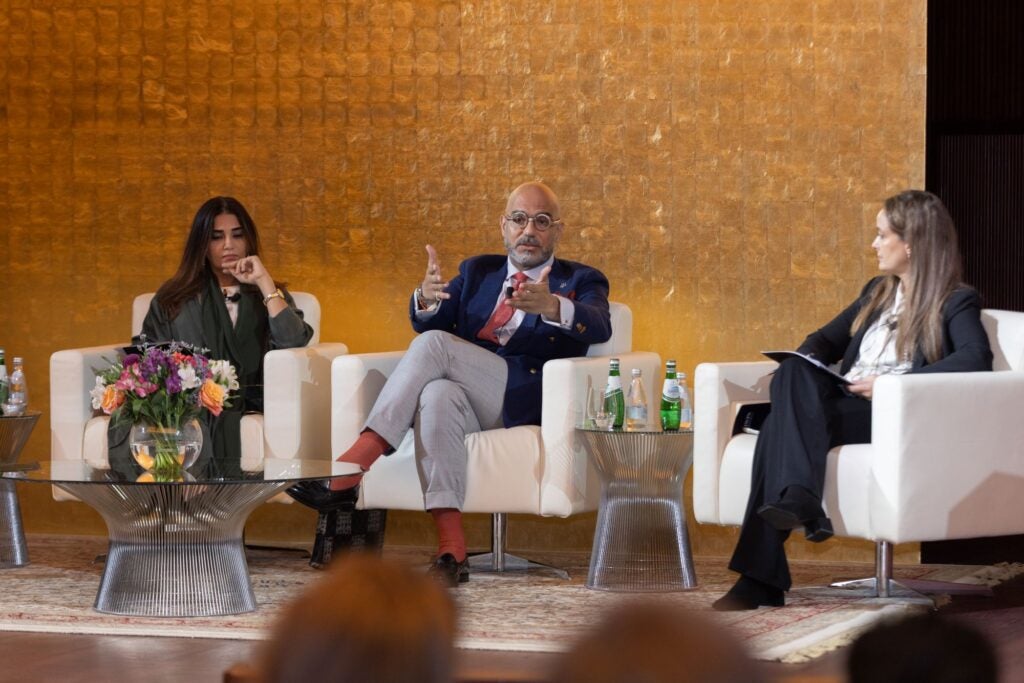
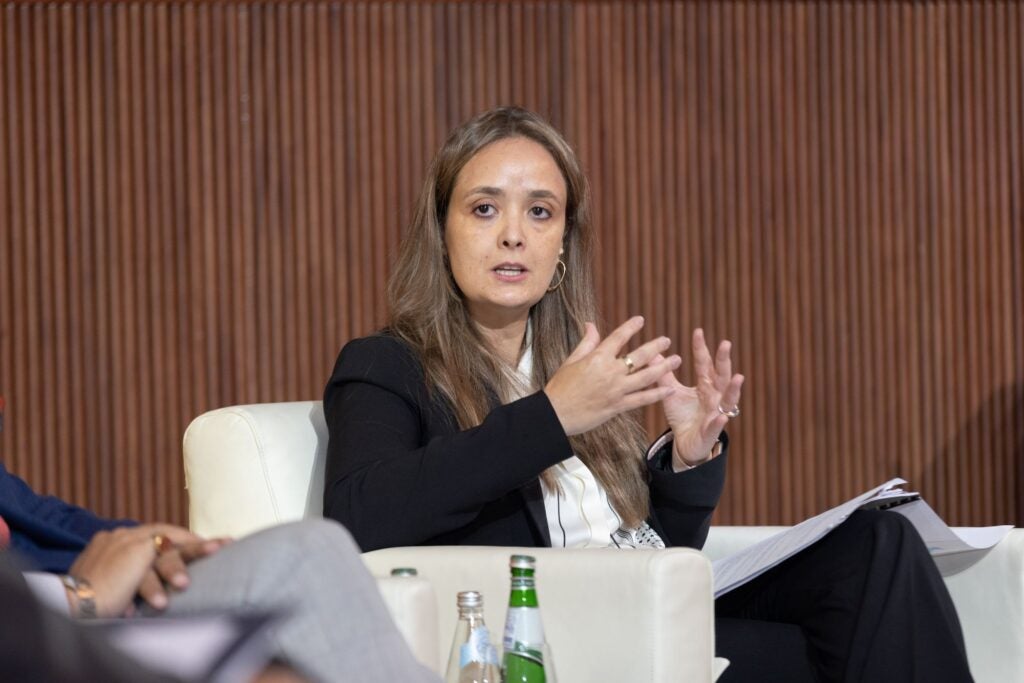
As the event concluded, it was clear that the MENA Women Peacebuilders Initiative will continue to build momentum. They plan to deepen these conversations and expand their reach, fostering a network of leaders dedicated to reshaping the future of peace in the MENA region.